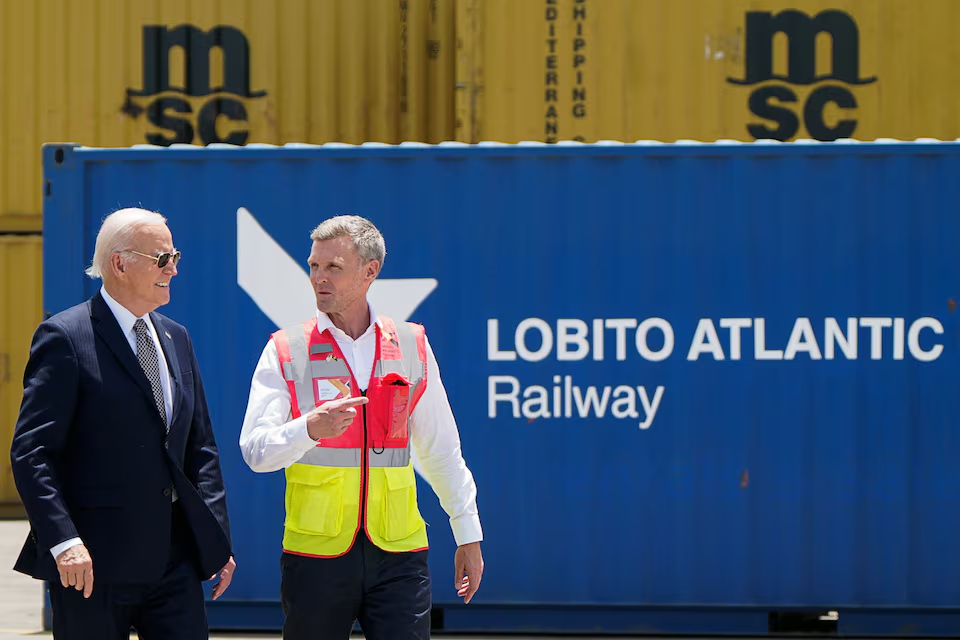
LUANDA, April 3 (Reuters) – The United States remains committed to funding the Lobito rail corridor, a project to help transport critical minerals from the central African copperbelt to the West, despite President Donald Trump’s aggressive spending cuts, a U.S. diplomat said.
The U.S, through its International Development Finance Corporation, set up during Trump’s first term in 2019, has pledged a $550 million loan to support Lobito, which is considered key in countering Chinese control over copper and cobalt supplies in the region.
Trump’s spending cuts had raised concerns for projects such as Lobito which has plans for Angola, Democratic Republic of Congo and Zambia. But the U.S. Ambassador to Angola, James Story, sought to allay fears on Wednesday.
Story was accompanied by European diplomats, Angolan officials and executives from Lobito Atlantic Railways on a tour of projects in Angola.
Asked if funding for the Lobito corridor was at risk, Story said: “Not at the moment. All the projects with the DFC and also with the Exim Bank are there and we’re working on them.”
“Various organisations say that we’re moving away from this project, but that’s not true,” Story said.
In 2022, Angola handed a 30-year Lobito corridor concession to the Lobito Atlantic Railway consortium joint-venture led by commodities firm Trafigura, construction giant Mota-Engil and independent rail operator Vecturis SA.
The first phase of the venture involves refurbishing an existing 1,300 km (800 mile) railway through Angola and extending it into the Democratic Republic of Congo’s mining heartland, to facilitate exports of copper and cobalt through the Atlantic coast.
A second phase currently under feasibility study would link Zambia – Africa’s second largest copper producer after the DRC – to Lobito.
Lobito Atlantic Railways CEO Francisco Franca, who was part of the tour, said DFC financing contracts were “currently in the final stages”.
“In two or three months’ time, we expect to have the contracts signed and then the normal international financing procedures will follow,” Franca said.
Rosário Bento, the EU ambassador in Angola who also took part in the visit, said Western governments including the U.S remained committed to the Lobito corridor project.
“The United States has an interest in the region and is already receiving shipments of raw materials that pass through the Lobito corridor,” she said. “I don’t see the United States being disinterested in something they are already benefiting from.”
(Reporting by Miguel Gomes; Writing by Nelson Banya; Editing by Olivia Kumwenda-Mtambo and Andrew Heavens)

